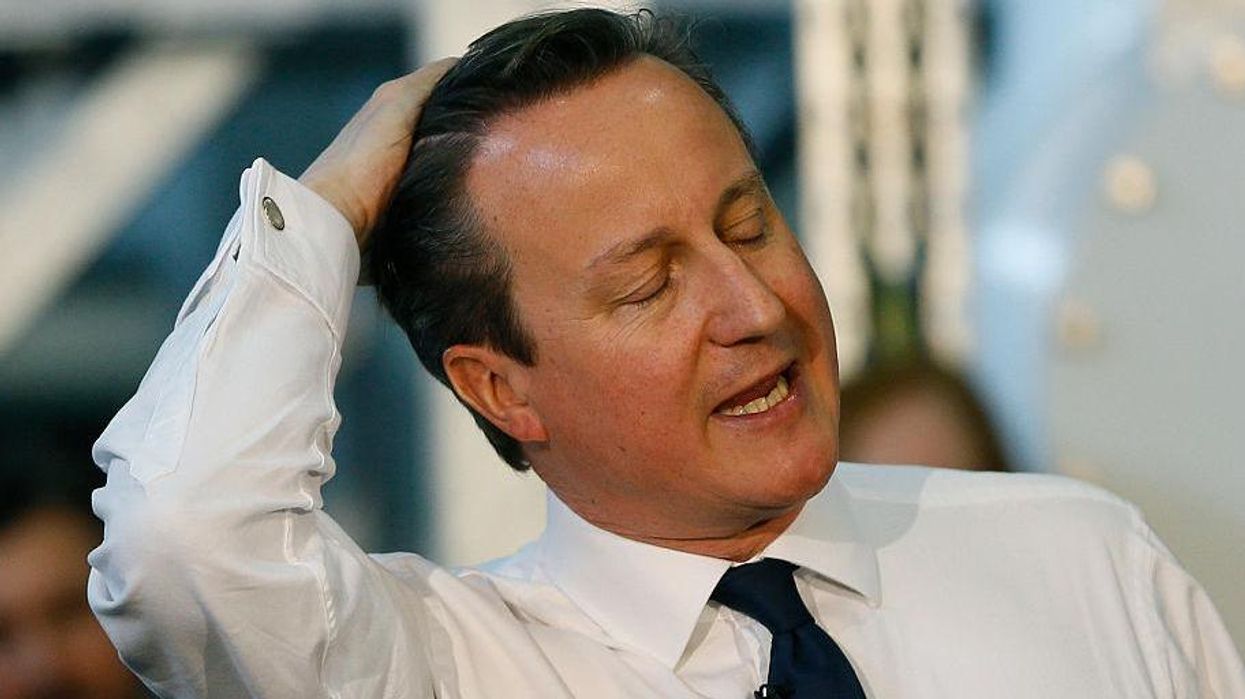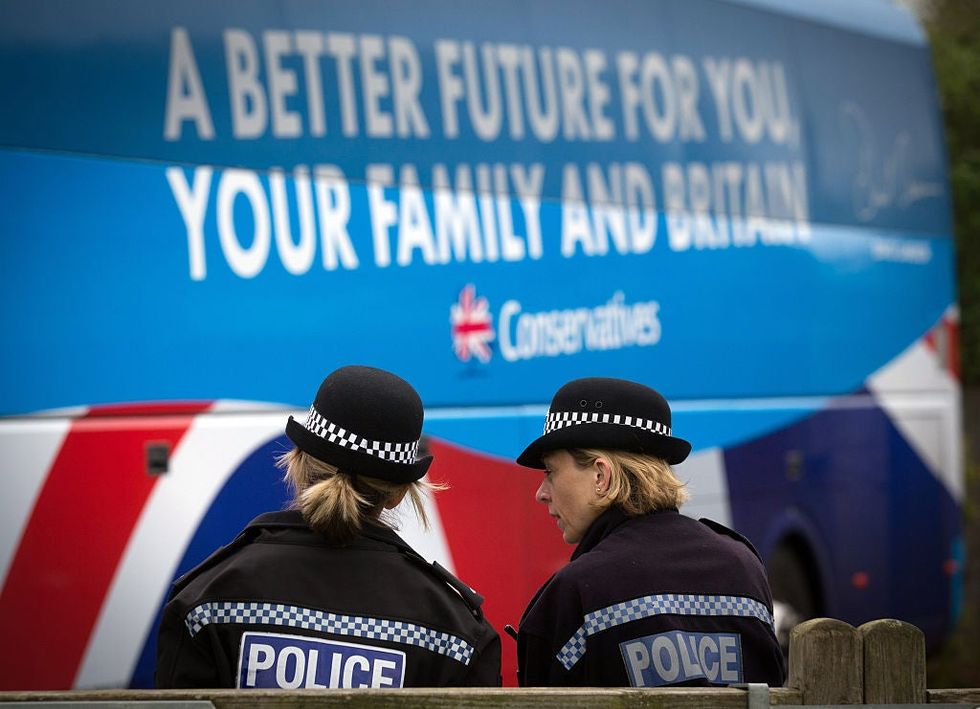News
Joe Vesey-Byrne
Mar 16, 2017

Picture:
Getty
On Thursday, the Electoral Commission issued the Conservative Party with a £70,000 fine for failing to declare more than £100,000 worth of spending during the 2015 election.
The announcement follows fines of £20,000 each, issued to the Labour Party and the Liberal Democrats.
In a statement on their website, the commission stated that the Conservative Party’s 2015 UK parliamentary election spending return was missing payments worth £104,765.
The commission’s full report concluded that the extra spending had given the party a ‘financial advantage’ over its opponents.
The inclusion in the party return of what in the commission’s view should have been reported as candidate spending meant that there was a realistic prospect that this enabled [the Conservative party’s] candidates to gain a financial advantage over opponents.
Separate to this, £118,124 was not reported to the commission or was incorrectly reported by the party.
A portion of this amount should have been included but wasn’t. Another portion was included in the party’s return when it should have been in the candidate’s return.
The Electoral Commission regulates election spending and has powers to penalise parties committing offences under the Political Parties, Elections and Referendums Act (2000).
They launched an investigation on 15 February 2016, following inquiries made by Channel 4 News.
In summary of their findings, the commission wrote:
The investigation established that the Party’s general election return was neither complete nor correct, and the evidence gathered during the course of the investigation has given the Commission reason to suspect that an offence may have been committed.
They also found that the Conservative Party's 2014 European Election returns were in order.
Campaign 'Battle Buses'

The use of campaign buses, which bring activists to seats around the country, creates a grey area with regard to calculating campaign spending.
Although activists are purportedly doing 'national campaigning' for the party, it's difficult to distinguish that when it's done in a parliamentary seat where activism can also be of benefit to the constituency candidate.
The use of battle buses by the Conservative Party was highlighted in the Electoral Commission's report.
While they admitted they had 'found no evidence', the commission also said battle buses created an 'inherent risk' that candidate campaigning could take place.
The commission has found no evidence to suggest that the party had funded the Battlebus2015 campaign with the intention that it would promote or procure the electoral success of candidates. Nevertheless, coaches of activists were transported to marginal constituencies to campaign alongside or in close proximity to local campaigners. In the commission’s view, there was a clear and inherent risk that activists might engage in candidate campaigning. Further, it is apparent that candidate campaigning did take place during the Battlebus2015 campaign.
Missing invoices
In addition to these charges there were fines for failing to provide invoices relating to election spending.
According to the commission, the Conservatives failed to provide invoices to account for 81 payments valued at £52,924.
The commission also said the party had failed to maintain proper records of the amount it had invoiced three candidates in by-elections that took place in 2014.
Police investigations
12 police forces have been reportedly engaged in investigations of election spending.
The Crown Prosecution Service (CPS) stated they had received evidence from 11 police forces regarding election spending.
Staffordshire Police also stated it had given over evidence to the CPS.
The Conservative Party will have 28 days to appeal the £70,000 fine.
In an official response to the fine and the statement made by the Electoral Commission, the Conservatives stated that both Labour and the Liberal Democrats had also failed to declare sums of money, and that the spending rules should be ‘clarified’.
Political parties of all colours have made reporting mistakes from time to time. The Labour party and Liberal Democrats both failed to declare sums of money which constituted a larger proportion of their national expenditure in the 2015 general election. Both have been fined by the Electoral Commission, and the Liberal Democrats are also under police investigation.
This is the first time the Conservative party has been fined for a reporting error. We regret that and will continue to keep our internal processes under review to ensure this does not happen again. Given the range of technical errors made by a number of political parties and campaign groups, there also needs to be a review of how the Electoral Commission’s processes and requirements could be clarified or improved.
Read the full statement here.
£20,000 is the maximum penalty the commission can issue for a single offence. The Conservative's much higher figure is the total of all their fines from the commission.
Conservatives increase their lead on election spending
According to the figures based on the amounts that were originally declared to the Electoral Commission, the Conservative Party spent the most money in the year leading up to the 2015 election.
As such the extra undeclared or incorrectly declared money pushes the Conservatives even further ahead of the other parties.
How might this change the election?
On Tuesday, the Conservative MP Craig Mackinlay was interviewed by Kent police over election spending in South Thanet, the seat Mackinlay held for the party against a challenge from the then Ukip leader Nigel Farage.
Farage is not the only candidate who may have lost an election to a Conservative candidate because of this undeclared spending.
If police investigations and the Crown Prosecution Service activities lead to the 2015 results being voided, it could mean multiple by-elections, in the middle of the government's Brexit negotiations.
Conservative seats within boundaries of the 12 Police Forces
Police have not named either the MPs nor the election agents under investigation, but races in up to 20 seats are believed to be under scrutiny.
There were 96 seats won by the Conservative Party in 2015 whose boundaries fall within the 11 police force areas named by the CPS.
No statement by the police, the electoral commission or the CPS has identified these 96 seats as under investigation.
Conservative marginal victories
The Conservative majority in parliament after the 2015 election was 12 seats.
In parliamentary elections a 'marginal constituency' is one where the winner leads by less than five per cent of the vote.
In the 2015 election there were 22 seats in England won by the Conservative Party with a lead on the second party smaller than five per cent.
The extent to which undeclared or incorrectly declared spending in these constituencies altered the result remains unclear, while the seats under investigation remain anonymous.
On Wednesday Will Quince, the MP for Colchester, released a statement that he had been interviewed under caution by Essex Police in January 2016, but they will now be taking no further action with regards to his election expenses.
The number and identity of seats under investigation remains unknown.
HT Independent, Times, Guardian, Financial Times, Politics Home
More: Where Tory election fraud claims are being investigated, in one map
Top 100
The Conversation (0)













